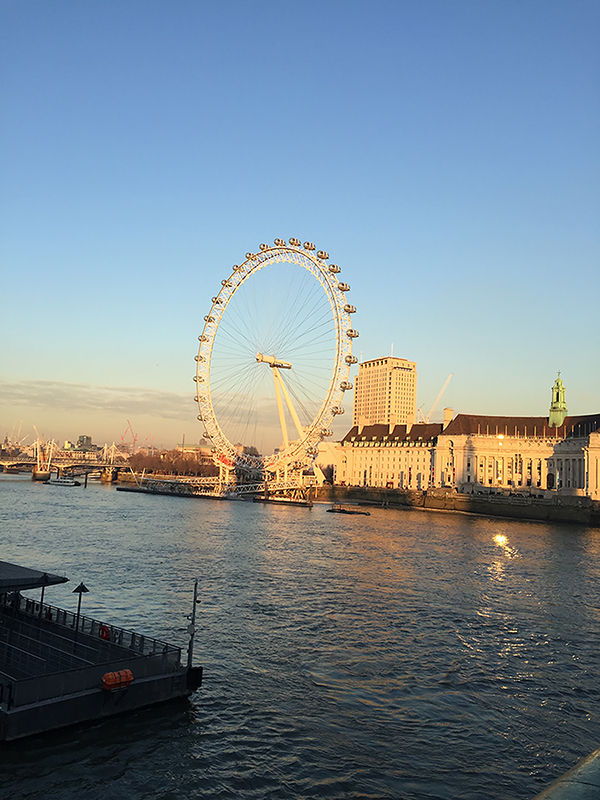A Closer Look at the “Study” in Study Abroad
Hello from the other side … of the pond. This spring, I’ve joined the ranks of thousands of students studying abroad in London. But rather than recount my travels through the land that brought us wonders like Adele and Kate Middleton, I thought I’d make my first post about the study part of the abroad experience which has proved quite interesting in my first few weeks here.
Part of the reason I applied to the program at City University of London was because I wanted to be a more informed global citizen, to better understand the world around me and the people living in it. USC prides itself on being one of America’s most diverse universities, but discussions of international politics and policy conflicts often seem abstract and distant. Students are more likely to be spotted covering a red carpet event than the refugee crisis.
A common thread of my classes this semester is discussion of conflict. But unlike at USC, at City the conflicts we discuss are not half a world away. When my professor mentions the Balfour Declaration, I glance at the student sitting behind me who has identified himself as a Palestinian living in Israeli occupied territory. For him the Israeli-Palestinian conflict is a part of everyday life. For the girl from Northern Ireland sitting behind me, the Good Friday Agreements are more than just words on a PowerPoint slide.
That’s not to say that I think American students are less sympathetic to international conflict, however, geography creates a boundary that provides a good excuse not to think about it. Europe is smaller and less isolated. The ripples of conflict — whether it be the number of Syrian refugees flooding across borders or the prospect that the United Kingdom might leave the European Union — are more pronounced.
I’ve learned the most here by being attuned to what my classmates are saying. Maybe I’ve become a better listener or I’m just more interested. Whatever the case, what I’ve taken away from the experience is a reminder that whether in London or Los Angeles it’s important to think critically about conflicts and the people affected by them. Whenever possible, surround yourself with those people who force you to challenge and maybe even change your thinking.
Distance shouldn’t be an excuse for apathy. My European classmates discuss “feeling the Bern,” Hillary Clinton’s emails and the absurdity of Donald Trump just as much as the students back home. But, I rarely if ever hear an American friend mention Prime Minister David Cameron or even Queen Elizabeth. You don’t have to be a politically minded-student to arm yourself with a basic knowledge of what is going on around you. As I write this the two girls next to me are talking about the lack of diversity at the Oscars. In the modern world where technology makes us more interconnected than ever before, students here seem to have a better understanding that nothing happens in a vacuum.
If students here take the time to inform themselves about what is happening in America, American students should do students in other countries the same courtesy. Here’s to hoping that my semester-long taste of an international perspective stays with me for the long haul.

